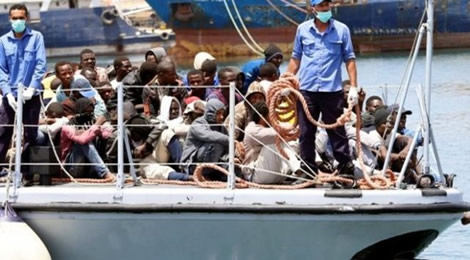160 African migrants repatriated from conflict-ridden Libya

The International Organization for Migration has repatriated 160 African migrants who have been living under dire conditions in Libya amid the chaos reigning in the country.
The U.N. migration agency says it returned the stranded migrants to their home countries despite what it calls the extraordinarily difficult conditions on the ground. The situation in and around Tripoli has become increasingly violent and unstable since a renegade general began an offensive April 4 to capture the Libyan capital.
Even with thie turbulent backdrop, IOM organized a charter flight this week to Mali carrying 160 migrants. Most will remain in Mali, but 61 migrants from Ivory Coast and Burkina Faso will continue onward to their homes of origin.
IOM spokesman, Joel Millman, said his agency has had to work around the difficulties posed by increased airport security this week. Security has been tightened since the airport was hit by an airstrike. Millman said IOM’s chartered plane has had to adjust to the new limited hours of operation.
“Amid the ongoing clashes, IOM staff in Libya coordinated very closely with Libyan authorities to ensure the safe arrival of all migrants coming from different detention centers and different urban areas in Tripoli to Mitiga airport. The airport was briefly affected by the armed conflict this week, but later resumed activity – as I said, only between the hours of 7 p.m. and 7 a.m. every day,” Millman said.
So far this year, the IOM has repatriated 3,175 migrants from detention centers and urban centers. Millman told VOA he does not know how the conflict will affect future returns.
“Of course, any insecurity that arises from violence or weather or anything else will upset that well-oiled machine. But I guess, to reiterate what I said at the beginning, the fact that we did it now in this climate indicates we intend to do it whenever we can,” he said.
Millman said the IOM helps the migrants reintegrate in their communities upon their return. Upon arrival, he said they receive immediate assistance and medical screenings. He noted that IOM tailors its reintegration support to the specific needs of returnees. He added that the aim is to help them earn a living and become economically self-sufficient within their communities of origin.





